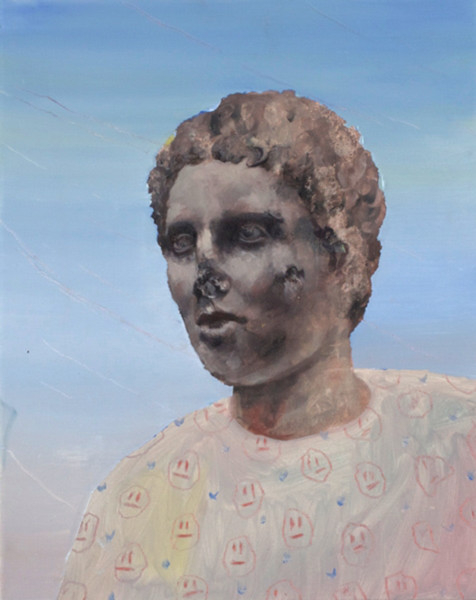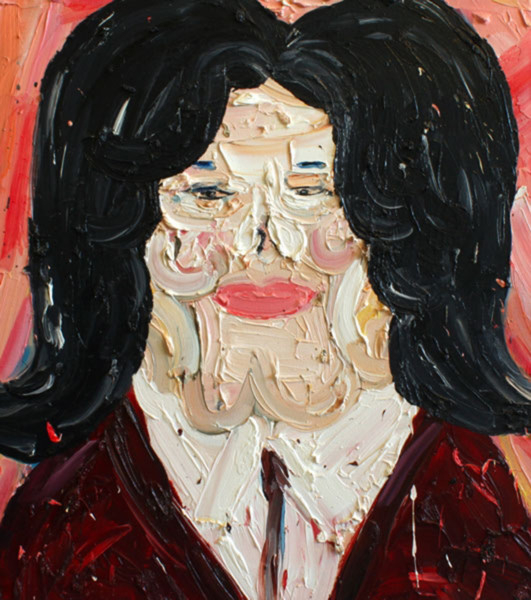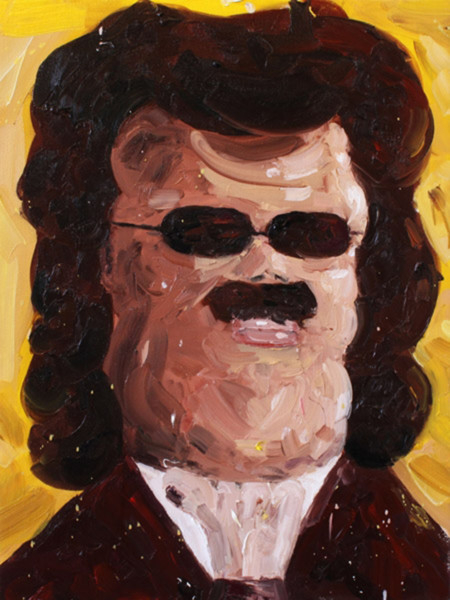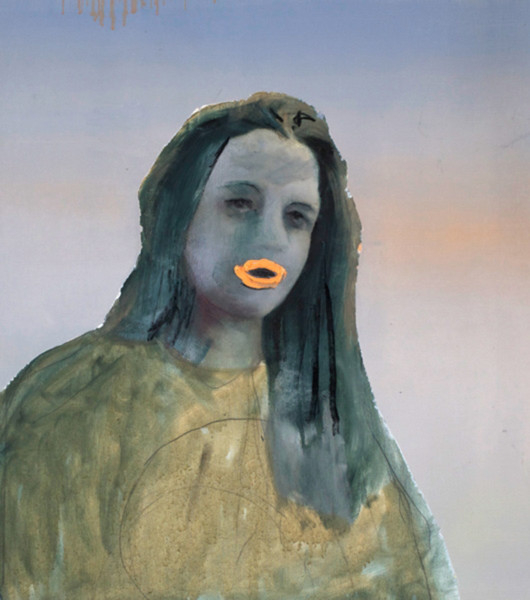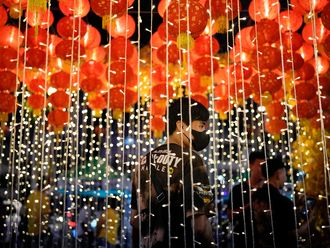The latest exhibition at Carbon 12 gallery, Good Face and Incurable Flaws, brings together paintings by two young artists from different parts of the world —Teheran-based Amir Khojasteh, and Philip Mueller from Vienna. Their styles are different, but both artists have used portraiture to express themselves.
The distorted faces in Khojasteh’s abstract expressionist portraits speak about the flaws of powerful leaders, and their impact on ordinary people. Mueller on the other hand chooses to ignore the shortcomings of people, and highlight the beauty that exists within us, reminding us of the power each one of us has to take the best from those who came before us, and to always seek to evolve into better human beings.
Khojasteh works spontaneously, to create surreal, expressionist portraits of well-known figures — ranging from the Pope to famous politicians and artists. He likes the idea that his ambiguous faces can be interpreted differently by different people, underlining the diversity of perceptions and attitudes in society.
“I am not interested in depicting my subjects as they are. In my mind, I transform them into a new person in a new world, using them as a medium to express certain notions and emotions. I try to show the dark side and the funny side of the world in each portrait, underscoring the idea that comedy begins where tragedy ends,” Khojasteh says.
Many of his paintings depict ‘fear makers’ such as Hitler and Stalin. There is a set of 27 paintings, whose subject appears to be Donald Trump, but the artist denies that.
“This series is called Big Brother, and is inspired by the dictatorial character in George Orwell’s book, 1984. Today we can see the rise of dictatorial leaders in many countries around the world. So, I imagined a dictator living alone on an island, constantly telling himself that he is the smartest and most powerful person in the world, and covering the whole island with portraits of himself. In real life ordinary people have to play by the rules set by such ‘fear makers’, so I wanted to turn the tables and play with them instead,” the artist says.
In other paintings, Khojasteh speaks about pain and depression through portraits of figures such as Van Gogh, Michael Jackson and Frida Kahlo, who endured a lot of suffering in their short lives, as well as of Iranian artists and performers who are living in exile, due to the curbs on their creativity in their country.
“With the unending conflicts in our region, caused by various fear makers, the people have learnt to live with pain and accept it as something normal. This is so tragic that it is almost comical,” he says.
Mueller’s portraits look like classical European paintings, and he has used traditional techniques to create them. They are part of his Mutters (mothers) series, which depicts an array of fictitious ancestors, the Ahnen, whose influential role in society and history represents subversive power.
The artist began this series during a trip to Italy, and many of his paintings are based on Greek and Roman sculptures of figures such as emperor Tiberius, and Alexander the Great, that he saw in the museum in Naples. But his subjects also include his mother and great grandmother. Although they are depicted during their childhood and youth, the artist has used contemporary backdrops, thus establishing a connection between the past and the present.
Many of the people in these paintings are portrayed with mountain like objects on their heads, signifying the baggage we carry and the ghosts of the past that we live with. The artist has also inserted references from his personal life, and contemporary socio-political issues into his paintings, but he claims that his work is not political.
“For me this series is essentially about learning classical painting techniques, and creating a family tree showing how everybody is connected to each other, and evolving with time. These fictitious ancestors are mythological and real figures that we look up to, and are part of us. My paintings link the past with the present, and reality with fiction, and each individual has to decide what they want to take into their life from the Ahnen,” he says.
Jyoti Kalsi is an arts-enthusiast based in Dubai.
Good Face and Incurable Flaws will run at Carbon 12 gallery, Alserkal Avenue, until October 31.



